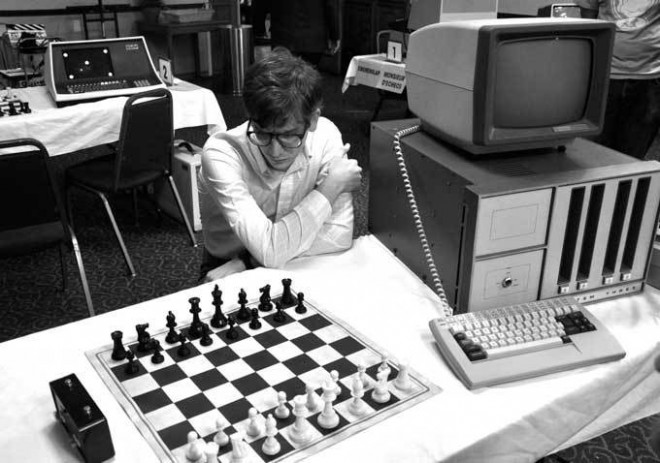In Tyler Cowen’s smart New York Times editorial “Who Will Prosper in the New World,” the economist tries to identify the victors and the victims in a highly automated society. In one passage that I don’t excerpt, he suggests that the studious who take advantage of online learning will do best, but some of the most studious people I know are struggling the most right now. And I wonder if an ageist culture like ours will respond to older folks who continue to educate themselves. We’ll see. Here’s an excerpt about some of those he believes Big Data will diminish:
“Who will be most likely to suffer from this technological revolution?
PEOPLE WITH DELICATE FEELINGS Computing and software will make it easier to measure performance and productivity.
It will be harder to gloss over our failings and maintain self-deception. In essence everyone will suffer the fate of professional chess players, who always know when they have lost a game, have an exact numerical rating for their overall performance, and find excuses for failure hard to come by.
Individuals will have many measures of their proficiency. They will have an incentive to disclose that information to get the better job or social opportunity. You’ll assume the worst about those who keep secrets, and so openness will reign. Many of us will start to hate the idea of Big Data.
PEOPLE UNLUCKY IN HEALTH CARE Quality surgery and cancer treatment cannot be automated very easily. They will be highly expensive, and unlucky health breaks will be all the more tragic because not everyone will be able to afford the best treatments.
With marvelous diagnosis available online, some people will get the right treatments early on, whereas others will know exactly what they are dying from.”
Tags: Tyler Cowen

